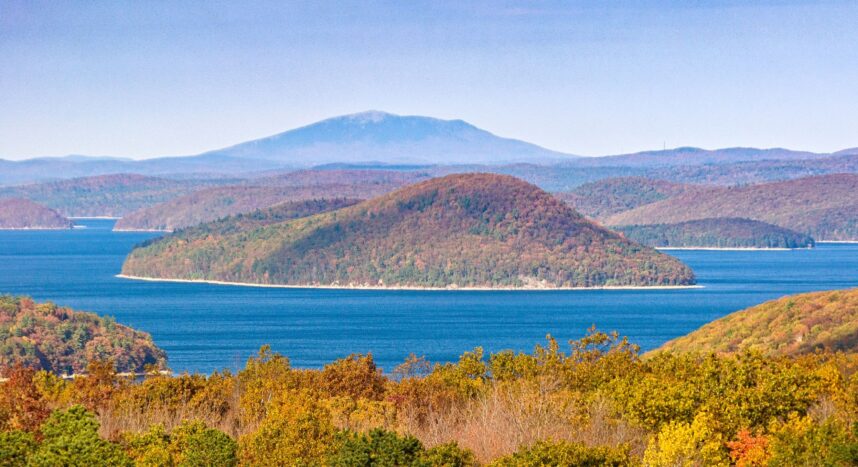Healey Administration’s Initiative to Combat Climate Change
The Healey Administration recently announced an ambitious initiative to leverage Massachusetts’ vast forest resources in the fight against climate change. The Climate-Oriented Forest Management Guidelines aim to provide science-based guidance on managing state lands and incentives for private landowners to maximize carbon storage, sequestration, and overall climate resilience. A critical component is gathering input from stakeholders, experts, and the public on how to balance climate goals with other needs like recreation, habitat protection, and in the case of the MWRA, providing clean drinking water to millions of residents. The Advisory Board appreciates the opportunity to engage in the process of developing sustainable policies that balance addressing the urgent threat of climate change with maintaining the pristine source drinking water that serves over 3 million people in the Commonwealth.
The request for comments was framed by three questions. On September 15, 2023, the Advisory Board submitted the following responses to the three questions as well as the general comments that follow.
What role should humans play in optimizing carbon storage and sequestration in forests? To advance other objectives such as clean water, habitat for rare species, or wood products?
We support the overall goal of optimizing carbon storage and sequestration through sustainable forest management practices. However, it is also critically important that active, science-based management of forests be permitted to maintain clean water supplies and other benefits. The pristine condition and high water quality of the Quabbin and Wachusett Reservoirs, which supply wholesale water to over 3 million people in Massachusetts, is a direct result of active but very limited management by the DCR Division of Water Supply Protection. Less than 1% of the total forested watersheds are selectively harvested each year, with harvesting distributed geographically and divided into small parcels to minimize impacts. Their foresters carefully steward diverse, multi-aged forests to filter contaminants and runoff. While climate goals are laudable, management for water supply cannot be compromised. With balanced policies that allow for carbon optimization as well as science-based practices to support water quality, both environmental and community needs can be met. Strict limitations on active management could jeopardize the “forest filtration” system relied upon by millions of Massachusetts residents. It’s also important to note that the MWRA operates under a federal court order that requires an adequate watershed protection program. If water quality declines substantially, it could trigger the requirement to build a water filtration system that could cost ratepayers upwards of half a billion dollars. Maintaining our high quality water through active but limited forest management protects public health and avoids massive costs that would impact communities across Massachusetts.
What is your definition or concept of forest reserves? What, if any, is the role of human intervention in maintaining reserve conditions?
We support establishing forest reserves for conservation purposes such as biodiversity and habitat preservation. However, it is our position that strict prohibitions on active management may not be appropriate in forest reserves that also serve as public water supplies. The MWRA’s reservoirs are located in protected natural areas, but require some level of science-based, sustainable forest management to maintain the exceptionally high water quality. Regular watershed monitoring along with selective cutting, thinning, and tree plantings are examples of human interventions that may be necessary in reserves where water supply is also a key objective. While minimizing human impacts is a worthy goal, water supply forests are only able to provide clean, safe drinking water to millions of Massachusetts residents because of prudent ongoing stewardship. With input from water supply managers, balanced policies for reserves could potentially be developed to allow the measured interventions necessary to sustain both forest health and water quality over the long-term.
According to the Massachusetts Climate Change Assessment (2022) degraded forest health is expected due to warming temperatures, changing precipitation, increasing pest occurrence, and more frequent and intense storms. What types of forest vulnerability do you think require effort to preserve, protect, fortify and/or enhance our state forest lands? What management practices or approaches do you suggest to make the forests of Massachusetts more resilient to the conditions projected by the Climate Change Assessment?
The MWRA’s water supply watersheds face considerable threats from the impacts of climate change. Increasing storms, pests, drought, wildfires, and other challenges have the potential to degrade water quality and forest health. To build resilience against these threats, we recommend active forest management tailored to the specific climate vulnerabilities of the Quabbin and Wachusett Reservoirs. Potential practices could include selective cutting to mitigate drought stress, pest control methods, fire breaks and fuel reduction, stormwater protections, and promoting diverse, climate-suitable tree species. A changing climate requires adaptive, science-based management approaches to enhance forests as natural protective filters for our reservoirs. While we strongly support climate-smart management, forests managed for water supply may require some flexibility from limitations or complete reserves status. With input from water supply experts, we believe carefully tailored policies can chart a path to forests that are healthy, sustainable, and able to provide the clean water that communities rely on in the face of new climate realities.
General Comments
The MWRA Advisory Board appreciates the opportunity to comment on the Climate-Oriented Forest Management Guidelines. As representatives of the ratepayers and stakeholders that depend on the forests managed by DCR’s Division of Water Supply Protection, we commend efforts to make our forests more resilient to climate change through sustainable practices. However, we must ensure these policies allow the active yet limited management necessary to maintain the pristine water quality from these exceptional natural resources.
The Quabbin and Wachusett watersheds are treasured assets benefiting millions statewide through both their ecological value and by providing clean, safe drinking water. Ongoing stewardship by DWSP foresters has resulted in a “forest filtration” system that produces water of exceptionally high quality in a cost-effective, natural manner. As climate pressures increase, adaptive, science-based management will become even more critical.
The Advisory Board has long advocated for policies and practices that are both environmentally sound and ratepayer equitable – “Green and Fair.” We understand the need to balance multiple objectives in setting forest policies. The Advisory Board believes strongly that with collaboration and consideration of water supply expertise, guidelines can be developed that support climate-oriented practices while retaining the flexibility for interventions necessary to sustain healthy, resilient forests and the pure water they provide. We look forward to working with state leaders to find this balance between water supply and climate preparedness. Our shared goal is protecting these invaluable public resources while maintaining an affordable, reliable source of clean water into the future.

